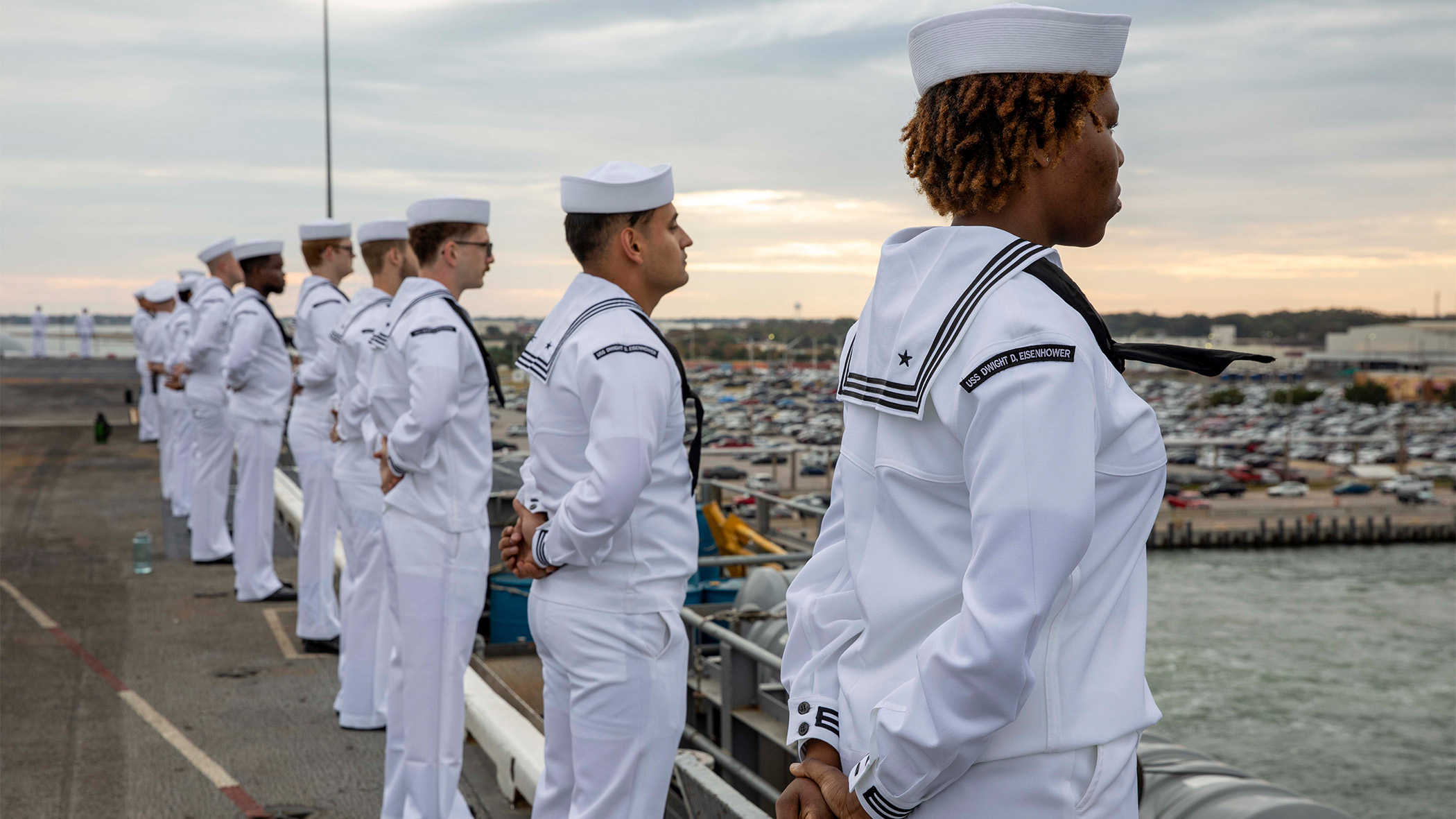Jenna Carlton left the Navy in 2017 after three years. She was raped during a party at her first assignment out of bootcamp, but decided not to report it.
“I just wasn't sure my chain of command would believe me because I saw how they handled victims who came forward or reported someone and it was not likely that I would be believed,” she said.
She transferred to Naval Station Norfolk, where she continued to confront rumors about herself and other women in the command. Before she enlisted, Carlton planned to rise through the ranks. After a year, she was making plans for life after the Navy.
“I couldn't see myself in a leadership position,” she said. “I couldn't see myself in that culture and being the best version of myself without having to somehow forfeit my personal values as a way to be successful in the Navy.”
After she left, Carlton founded Millennial Veterans, where she talks to other younger veterans with similar stories. Many of them are looking at the latest round of reforms to military justice.
“The kind of worst behavior I had seen had come from leadership and it was condoned throughout the ranks below them,” she said. “So I think it really starts with just changing that culture and making it unacceptable to have any sort of sexual harassment or assault behavior.”
Congress enacted a series of reforms to the military justice system. Unlike civilian courts, commanders decide whether cases, including sexual assault cases,will go to court martial, and even approve the jury pool.
Beginning this year, commanders no longer decide whether cases involving 13 high-profile crimes will go to court, including murder and kidnapping.
The changes were driven largely by perceived mishandling of sexual assault cases.
The law also requires each branch of military justice to create Offices of the Special Trial Counsel to prosecute the cases, said Rear Admiral Jonathan T. Stephens, who heads the new Navy office of the Special Trial Counsel.
“We hope that we can rebuild the trust, right?” He said. “And I think for me, one of the keys is kind of communication with all the stakeholders - working with victims, working with their counsel earlier and consistently throughout the process.”
Military lawyers in his office now decide which cases go to court. Like the other services, the Navy created regional offices, staffed with more experienced prosecutors.
Department of Defense data shows the number of cases of sexual assault being reported in the military has risen every year since 2010, but the number of cases referred to courts martial has declined over the same time period.
Norfolk has the highest concentration of all cases in the Navy. Navy data released in 2017 also showed the office had the highest number of sexual assault cases in the Navy. The Norfolk office will have ten special counsel attorneys who are expected to handle 500 cases a year, according to the Navy.
Under the change, Norfolk became the Navy’s Eastern Regional office, overseeing offices in Washington, D.C.; Mayport, Florida; Groton, Connecticut,; Great Lakes, Illinois and Naples, Italy.
The Western region is based in San Diego, with field offices in Bremerton, Washington; Pearl Harbor, Hawaii and Yokosuka, Japan.
The Air Force has also made Joint Base Langley-Eustis one of its six regional offices.
“If people understand that we are making these decisions independently, and based solely on our analysis of the evidence …hopefully if there were appearance issues on commanders or whomever making decisions …hopefully those will dissipate a bit,” Stephens said.
The reforms are considered one of the largest overalls of military justice since Congress signed into law the Uniform Code of Military Justice in 1950, which created standard practices for all the services.
Reformers have always been up against the idea that commanders need the authority to impose good order and discipline over troops under their command, said Rachel Vanlandingham teaches law at Southwestern Law School LA.
A former Air Force prosecutor, she has testified before Congress about the issue. She welcomes the latest round of reforms but victims are right to be skeptical.
“That trust was grossly abused and then destroyed because of the lack of accountability year after year, after year, dealing with allegations of serious, violent crimes, specifically dealing with rape and sexual assault,” she said.
Part of the problem is lawyers in the military don’t get enough experience. The Navy had only 165 courts martial in 2023 - and most were tried before a judge, not a jury, she said.
“These individuals are smart who go into the military,” she said. “They're smart. They're dedicated, it's a systemic issue, right? This is a structural issue. They are set up to fail here. They're set up not to get the requisite experience. And I think that's so unfair to those who are serving.”
Other reforms are on the way.
At the end of the year, commanders will no longer have a say in the pool of jurors available to the courts martial.
Starting Jan. 1, 2025, sexual harassment becomes a stand-alone crime in the military. Also in 2025, the Department of Defense will have to begin issuing reports that show how well the new system is working.

